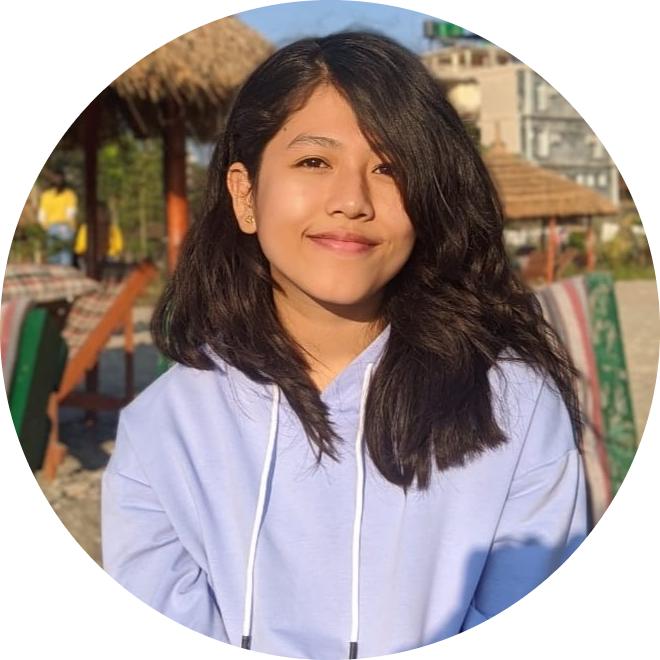ABOUT THE MILLENNIUM FELLOWSHIP - CLASS OF 2022
United Nations Academic Impact and MCN are proud to partner on the Millennium Fellowship. Over 31,000 young leaders on 2,400+ campuses across 140+ nations applied to join the Class of 2022. 200+ campuses worldwide (just 8%) were selected to host the 3,000+ Millennium Fellows.

UNITED NATIONS ACADEMIC IMPACT AND MCN PROUDLY PRESENT BIPASHA SHRESTHA, A MILLENNIUM FELLOW FOR THE CLASS OF 2022.
Kathmandu School of Law | Kathmandu, Nepal | Advancing SDG 4 & UNAI 3

" They say, team work makes the dream work. If you can walk a step ahead alone, then with a strong team you can walk a mile ahead. Through MCN, i can build a strong collaboration skills along with different knowledge that i will gain through the project. I, along with my team has always been advocating for a positive change. Through this project, we can actually create an impact and it will also help us to grow on individual levels. "
Millennium Fellowship Project: Jaagriti
"Jaagriti” is a Sanskrit word that means "Awakening” in English. Our project focuses on the 4th SDG goal “Quality Education” which is also guaranteed by the Constitution of Nepal, 2015, Article 31. The Act Relating to Compulsory and Free Education, 2018 guarantees compulsory and free education up to basic and higher secondary levels respectively. Our aim is to make aware of fundamental rights such as “free and easy access to Education” and hold the authorities accountable. Along with holding the authorities accountable, our goal is to work along with the local level government to provide what is stated by the state for the people.
To describe our project modality "Jaagriti" in an easy way, it would look somewhat as:
1) We, in the project, will initially study the government policies and measures taken for the implementation of The Act Relating to compulsory and Free Education,2018. Not just limited to it, we'll further study and analyze the implementation part as well. To study the implementation part, we’ll do both empirical and comparative studies.
2) In an empirical study, we along with our volunteers will visit different schools in Nepal. On our visit, we will conduct legal awareness on important provisions of the Act for students, teachers, and other staff as well. In the meantime, we will also conduct surveys with students and teachers along with the locals on implementation issues and get certain questionnaires answered by them. The same thing will be done on a societal level. Through this, we can do both legal awareness and collect primary data for our research.
3) In a comparative study, using Right to Information (RTI), we’ll collect information that affects quality education such as Budget allocation, the Recruitment process of teachers, Teaching-Learning methodology, Sanitation, Extra-curricular activities, special provisions for differently abled (deaf, blind), etc. as mentioned in the Act. Through comparative study, we can better figure out the problems in implementation.
4) Once we come to know the problems in implementation, we can also suggest certain measures to be taken by the Government of Nepal to better implement these laws. We have aimed to present a research report to the Education Ministry, concerned departments, NGO's, INGO's as to make a positive impact in policy level.
About the Millennium Fellow
Bipasha Shrestha is a young, hardworking and passionate learner. She was born in Bharatpur, Nepal and currently living in Kathmandu for her further studies. She believes that change is possible if one is determined enough to make it happen. She has always been advocating for positive change for which she thinks MCN provides a great platform to make the dream turn into reality. She believes if she can change the life of even a single individual, it would be a great fortune of her. In her future life, she plans to associate with projects that would help and advocate for positive change.








